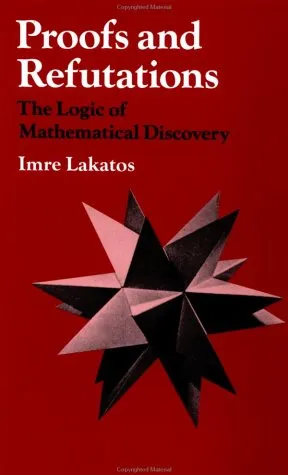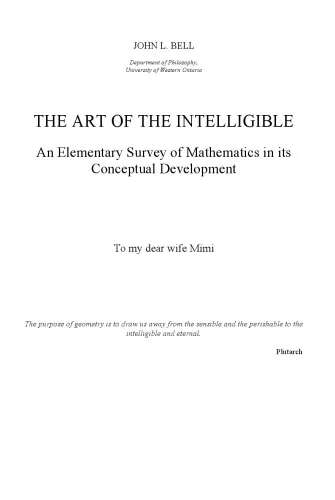Proofs and Refutations: The Logic of Mathematical Discovery
4.5
Reviews from our users

You Can Ask your questions from this book's AI after Login
Each download or ask from book AI costs 2 points. To earn more free points, please visit the Points Guide Page and complete some valuable actions.Related Refrences:
Introduction to "Proofs and Refutations: The Logic of Mathematical Discovery"
Written by Imre Lakatos, along with contributors John Worrall and Elie Zahar, "Proofs and Refutations: The Logic of Mathematical Discovery" is an influential work that explores the philosophy and methodology of mathematics. By challenging traditional notions of mathematical proof and providing insights into the evolutionary nature of mathematical concepts, the book has become a cornerstone for students and enthusiasts of mathematical philosophy.
Detailed Summary
"Proofs and Refutations" is not just a book but a narrative journey through the processes of mathematical discovery and the evolution of mathematical ideas. Lakatos uses a dialogue format to present his arguments, where a teacher and a group of students discuss the historic development of Euler’s polyhedron formula. Throughout the dialogue, provisional proofs and conjectures are presented, debated, and revised.
Central to the discourse is the concept that mathematics is not static, but rather a dynamic intellectual pursuit. Lakatos emphasizes that mathematical discovery involves continuously testing and refining conjectures, an iterative process that points out the limitations of a strictly deductive approach. This challenges the belief in infallible mathematical proofs and underlines the susceptibility of mathematical theories to falsification and improvement, much like scientific theories.
The book distinguishes itself by illustrating how proofs in mathematics can be both constructive and destructive, serving as tools to refine or refute conjectures, leading to deeper truth and understanding. Lakatos' unique approach showcases the cognitive and heuristic aspects of mathematical progress, encouraging a more realistic view of mathematical research.
Key Takeaways
- Mathematics should be considered a dynamic field focused on discovery rather than a static collection of eternal truths.
- Proofs are not final arbiters of truth but can serve as means to challenge and refine existing theories.
- Lakatos promotes a philosophy where errors have a vital role in the development and refinement of mathematical theories.
- The dialogue format illustrates the pedagogical process of understanding through discussion and argumentation.
Famous Quotes from the Book
"Mathematical concepts are not absolute, but achieve their meaning through their relationship to the proofs and refutations they engender."
"The history of mathematics is a history of conjectures and refutations."
Why This Book Matters
"Proofs and Refutations" stands as an essential text in the philosophy of mathematics and science for its revolutionary perspective on how mathematical knowledge is constructed and refined. By positioning mathematical exploration as an open, evolving dialogue, Lakatos offers a more nuanced understanding that aligns with the fallible nature of human inquiry. His insights help demystify mathematics, offering practical epistemological guidance to both students and professionals alike.
For educators, the book provides a framework for teaching mathematics that encourages critical thinking and collaborative exploration. For philosophers and historians, it challenges rigid conceptions of mathematical certainty, urging reconsideration of what constitutes mathematical knowledge. Lakatos's work continues to inspire philosophical thought, making it a must-read for those interested in the nature of discovery and knowledge in mathematics.
Free Direct Download
You Can Download this book after Login
Accessing books through legal platforms and public libraries not only supports the rights of authors and publishers but also contributes to the sustainability of reading culture. Before downloading, please take a moment to consider these options.
Find this book on other platforms:
WorldCat helps you find books in libraries worldwide.
See ratings, reviews, and discussions on Goodreads.
Find and buy rare or used books on AbeBooks.
1350
بازدید4.5
امتیاز50
نظر98%
رضایتReviews:
4.5
Based on 0 users review
"کیفیت چاپ عالی بود، خیلی راضیام"
Questions & Answers
Ask questions about this book or help others by answering
No questions yet. Be the first to ask!



